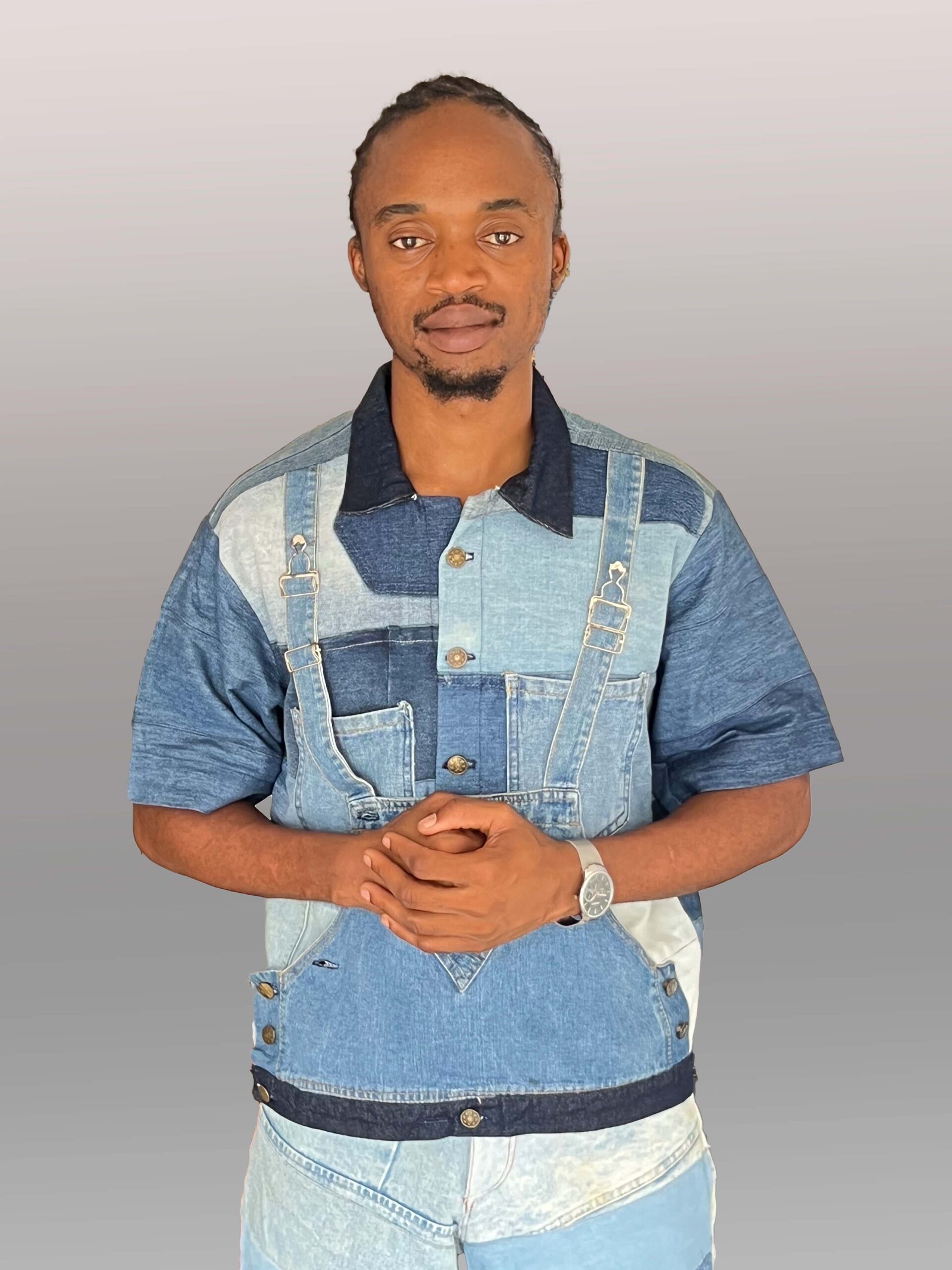
“UPCYCLE GOT ATTRACTED TO ME” Uche’s Journey into Sustainable Living
In a world where many opt for the corporate grind, Uche of Azach is flipping the script by building a thriving business out of ‘WASTE’. Meet Uche, the creative mind behind ‘AZACH’, who is making a living by upcycling and creatively repurposing waste materials. Join us as we dive into his journey, exploring the highs and lows of building a sustainable and circular business from scratch.
1. Hi, Uche, Can we get to know you better?
My name is Uche Nwosu, and I am a versatile creative living in Lagos. I am the CEO of AZACH, and I do a lot of creative work across several mediums.
2. What did you study, and what would you say was your dream career?
I genuinely knew I was not going to be in the 9-5 space for too long, but I studied engineering and practised as an engineer for a while before focusing on upcycle business full-time. However, I still have it as a side job because one has to continue hustling in Lagos.
3. Well, you mentioned how versatile you are; can you explain that?
First of all, my mom calls me ‘JACK OF ALL TRADE’; now imagine, ‘A MASTER OF ALL’. While growing up, I had my hands on several things to do; I even got to do shoe-making for some time because the creativity was just there, and I had the thirst to have my hands on several things until I found my love for denim upcycle.
I also do graphic design because people these days are outrageously expensive.
4. What sparked your interest in sustainability?
To be honest, I have always had this creative drive in me for as long as I can remember. When I was little, I used to live with my cousins. Whenever I outgrew clothes of any kind, I gave them to my cousins, but the way they used these clothes never sat well with me; it was more like they didn’t appreciate the value of the clothes, especially the denim wear. So I thought to myself that rather than giving them, I had to take the clothes to my tailor and have them redesigned or restyled.
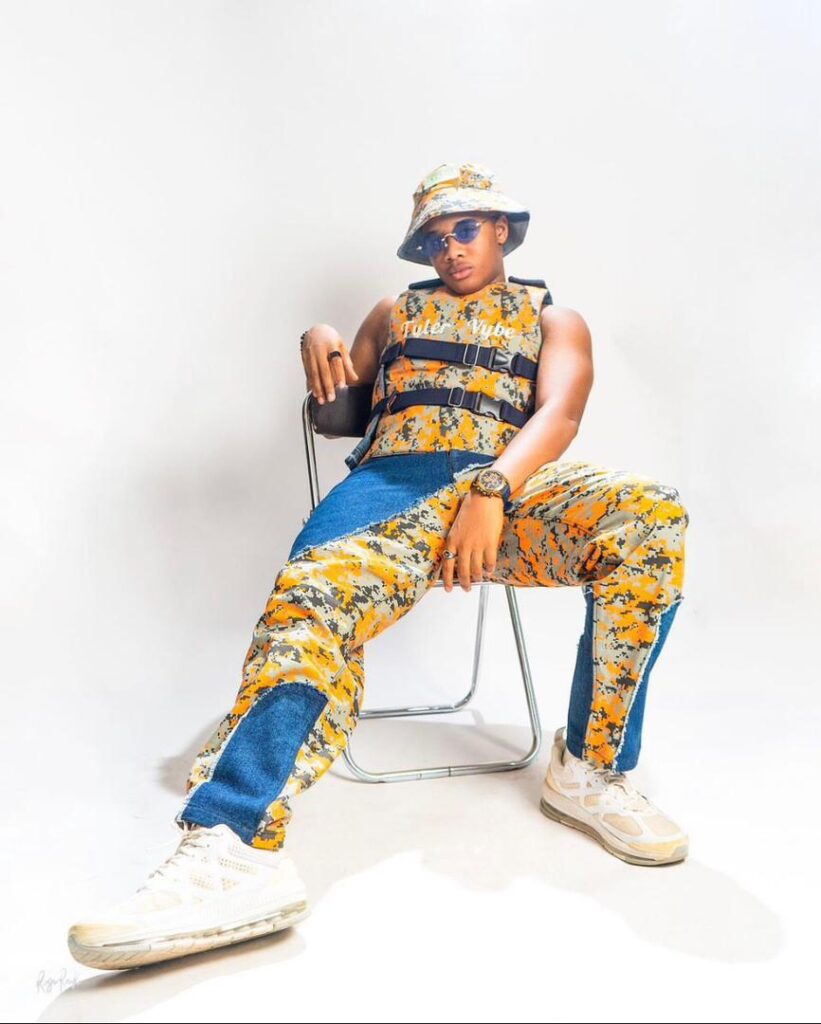

5. How did you learn about upcycling and the circular economy?
Well, I got informed through a friend. After becoming aware and finally accepting the fact that, as citizens, we can gain directly from the government, there is no going back for me.
6. When did Azach start?
It started back in 2012, since my university days, but as an upcycle brand, it started in 2022. Well, upcycle got attracted to me because I got my brand going, thinking it had just been a fashion brand before I understood the concept of upcycle.
7. So, I did my research and discovered that Azach is a bit pricey. Can you tell us why?
Azach is not that pricey, but we are on the luxury brand apex, and we are trying to put it out there as a high-value brand. Aside from that, the price to produce this product these days is really expensive, from the seller to revamping the denim, redesigning, and losing this material, and we pay everyone who works for it.
8. How does your brand contribute to climate change and the circular economy?
Firstly, the material we use in making our product is condemned denim that is left over from the sale of clothes by the Okirika Jeans seller. So rather than just trap them, we collect and buy them to redesign them into a luxurious brand.
The produce is the result of the little effort from AZACH in reducing waste in society. We also create jobs for individuals who render their services of revamping these clothes, making designs, and sowing the cloth into creative and luxury items. This procedure creates revenue and puts food on several people’s tables.
There was this time I had an employee who couldn’t pay for his tailor’s freedom, and thankfully, as a brand, we were able to pay this employee’s salary, and he was able to pay for his freedom, and that was a great joy to me.
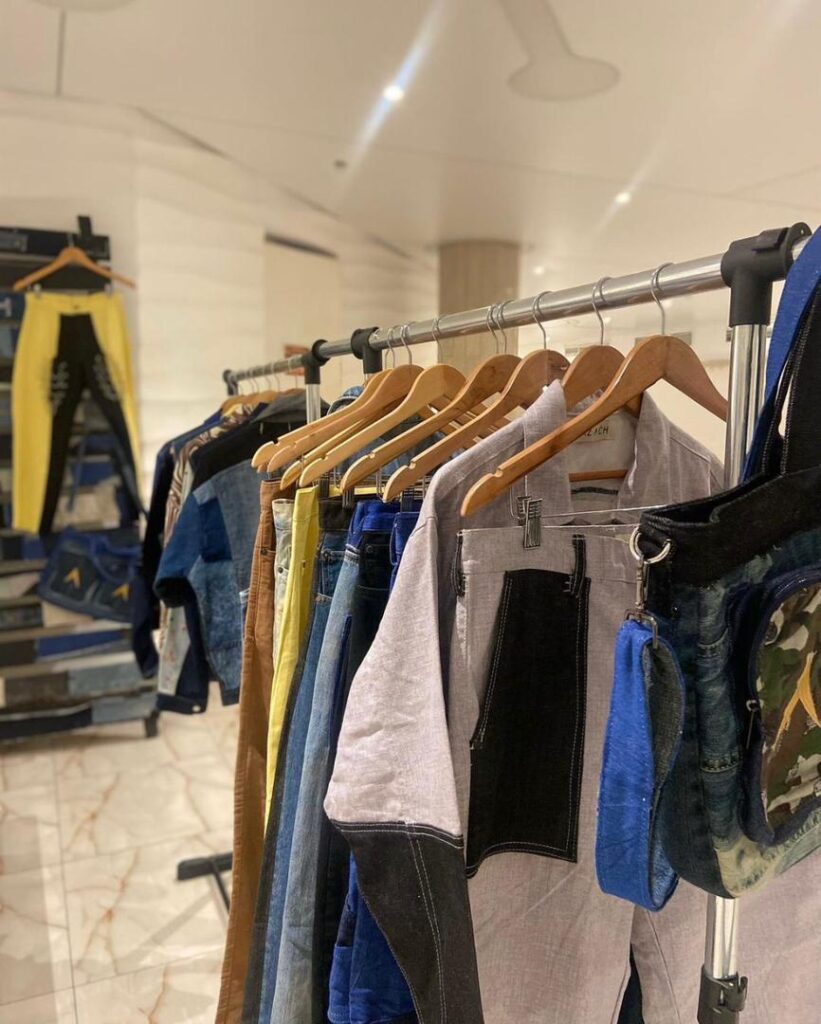
9. What are the major challenges your brand faces?
One of our biggest challenges is funding and also production, in the sense that there hasn’t been any production system in this industry. It’s hard to look up to anyone or a brand that has similar things going on in Nigeria.
10. Where do you see your brand in 3 years?
One thing is for sure: we are not going to be an upcycle brand for just denim and luxurious clothes but also furniture.
11. What advice will you give to people who are considering starting their own circular business?
A piece of advice for an upcoming circular business owner is to have money and a lot of time for your eco-business. Also, it is, for sure, a great space.
12. How many people are currently employed by AZACH directly and indirectly?
We have a team of nine individuals, four of whom are involved in production, while the remaining five contribute to our online operations. They assist with tasks such as digital marketing, social media management, and content creation.
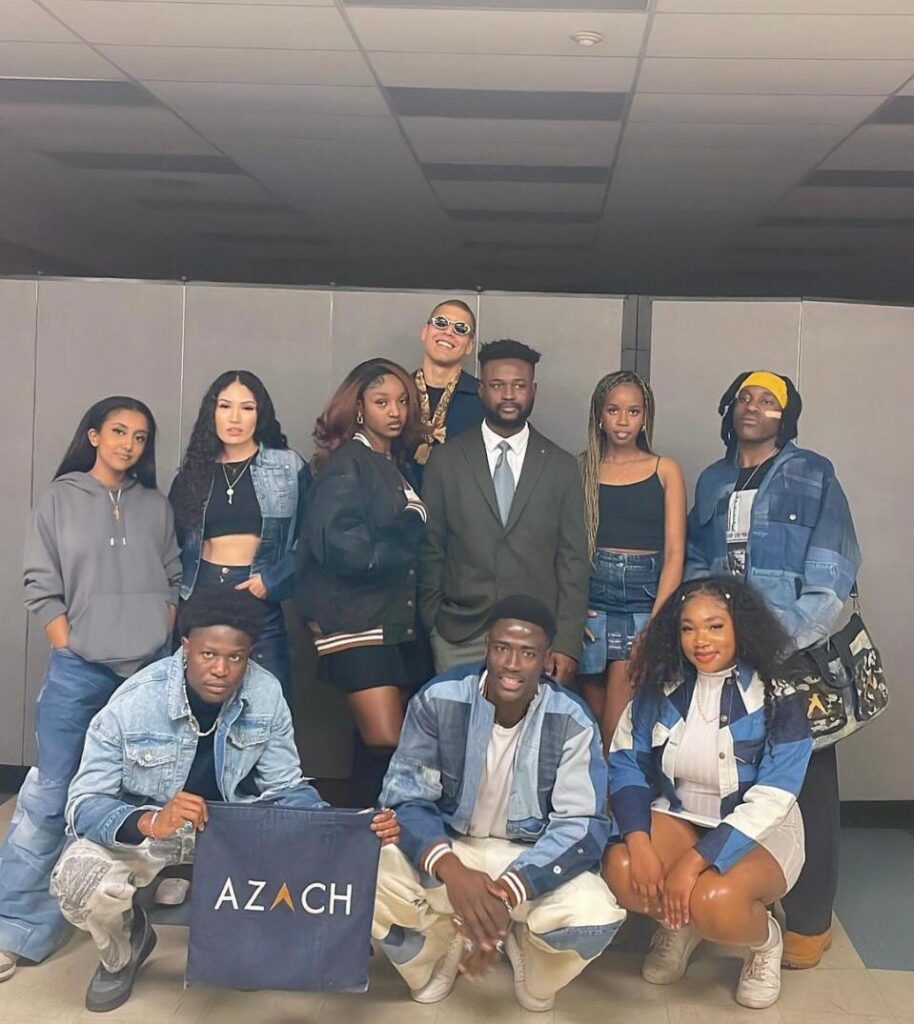
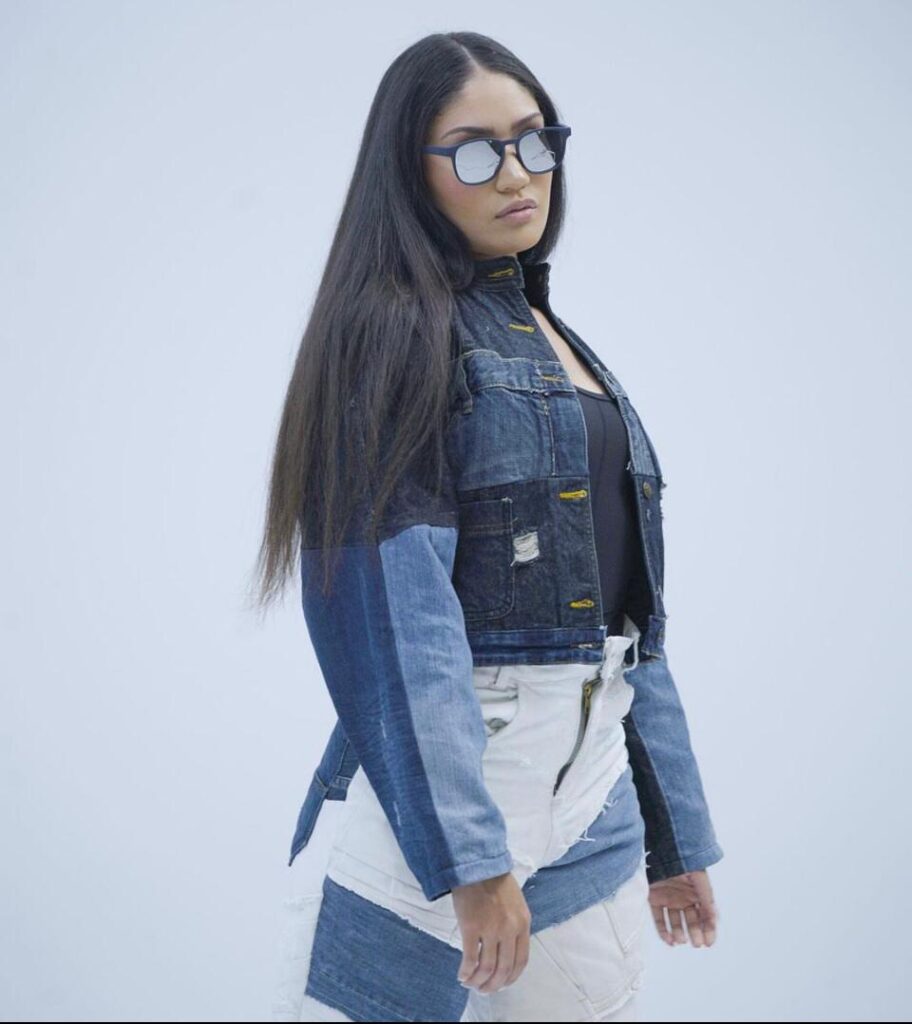
13. Do measure your carbon reduction in any way? And what is it?
Yes, we assess our carbon footprint by quantifying the volume of materials brought into our studio, tracking the amount intended for utilization, and ultimately measuring the fabric that remains unsewn into garments.
14. What are the opportunities that your sector sees?
The surge in demand for sustainable and ethical fashion products presents a significant opportunity within my sector. Additionally, the abundance of wasted fabric represents a valuable economic resource that should not be overlooked or squandered.
15. Is the business paying your bills or meeting up with your living standards?
No, it is not covering my bills or meeting my living standards at the moment. Most of the revenue generated is allocated towards covering operational expenses. However, we believe that by investing more effort and resources into marketing and design, we will be able to attract more customers and scale up.


